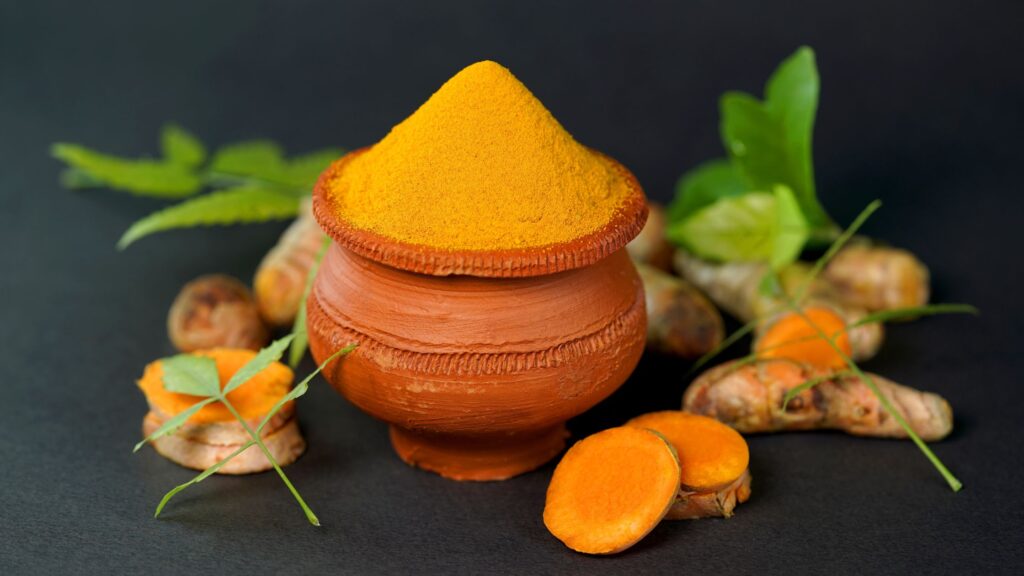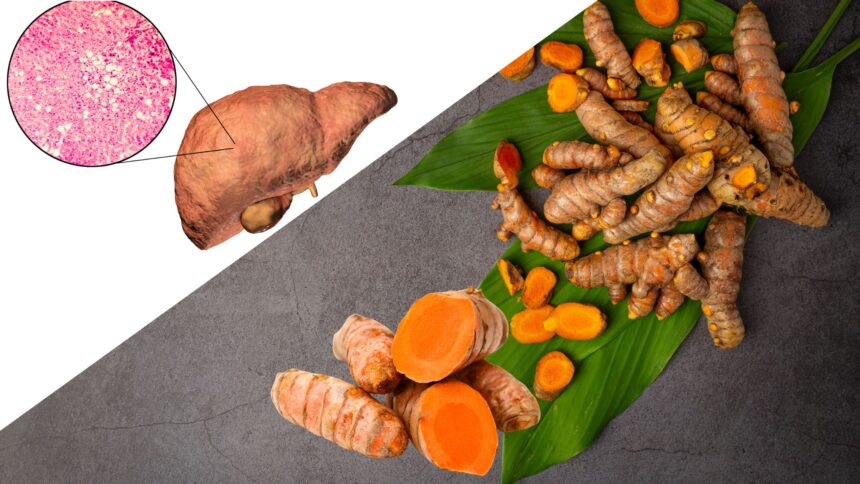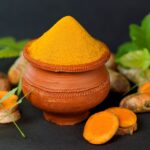The liver performs hundreds of vital functions every day, from filtering toxins and metabolizing nutrients to producing important compounds. Keeping this hard-working organ healthy protects the whole body. One strategy gaining attention involves using turmeric, a spice with impressively wide-ranging benefits, especially for liver support. But is turmeric truly good for the liver detox process, and how might it aid function when included regularly?
Is Turmeric Good for the Liver Detox?
Yes, turmeric can be considered good for liver detox. The primary compound in turmeric, curcumin, has been extensively studied for its potent antioxidant and anti-inflammatory properties, which can positively impact the liver’s ability to efficiently remove toxins and harmful substances from the body.

Curcumin Supports Detoxification
The yellow compound curcumin contained predominantly within turmeric roots gives this spice its antioxidant and anti-inflammatory properties. Curcumin has shown an ability to increase certain liver enzymes critical for phase I and phase II detoxification pathways. These enzymatic phases transform lipid-soluble toxins into water-soluble compounds safely excreted without generating free radicals. Curcumin may optimize conversion rates of potential toxins, lessening oxidative stress simultaneously. It enhances bile production and influences certain cytochrome P450 enzymes involved in liver chemical processing too. Compounds within turmeric appear directly useful for natural liver cleansing functions.
Reduces Inflammation & Fat Buildup
Chronic inflammation puts long-term strain on the liver if persistent inflammation states develop from diet, lifestyle or underlying contributors left unmanaged. Curcumin appears to reduce the expression of nuclear factor kappa-light-chain-enhancer of activated B cells (NF-kB), a protein complex regulating the transcription of genes involved in inflammatory responses. It inhibits pro-inflammatory molecule generation helping resolve ongoing inflammation to support healthy cell function. Curcumin also modulates adipokines tied to fatty liver when excess fat develops within liver cells, another protective approach.
Protects from Toxins & Oxidative Stress
Environmental pollutants, medications, recreational drugs, and other potentially toxic exposures challenge the liver by continuously breaking down and removing such agents to prevent damage. Curcumin shields liver cells against oxidative injury by neutralizing free radicals and reactive oxygen species. It interacts with and inhibits the activation of certain cytochrome P450 enzymes, preventing the formation of potentially toxic intermediates. Curcumin also blocks expressions of phase I enzymes metabolizing toxic carcinogens instead into less harmful forms excreted from the body smoothly.
Aids Metabolism of Sugars & Fats
Balanced breakdown and use of sugars and fats rely partly on optimal liver function. Elevated sugars and fats overloading liver pathways due to diet, insulin issues or obesity directly contribute to fatty liver disease potentially. Curcumin supports liver metabolic regulation at multiple points. It lowers liver gluconeogenesis, represses cholesterol synthesis and fatty acid formation, and increases insulin sensitivity and glycemic regulation too— all beneficial impacts lessening workload. Curcumin potentially prevents the progression of non-alcoholic fatty liver disease in part through enhanced mitochondrial energy production efficiency as well when fueled optimally.
Provides Potent Antioxidant Protection
Oxidative damage represents a pivotal mechanism by which the liver sustains harm long-term if exposed to continual insult without sufficient antioxidant defenses. Turmeric’s curcumin displays robust free radical scavenging due to phenolic hydroxyl functional groups. It counteracts oxidative stress at the molecular level through chelating transition metal ions fueling dangerous chain reactions too. Curcumin induces antioxidant enzymes further bolstering natural cellular protection against reactive intermediates capable of disrupting cellular functions and even DNA when left unchecked. Its multi-pronged antioxidant capabilities aid continual detoxification strains upon the liver.
Safety and Effectiveness Augmented by Black Pepper
While curcumin demonstrates exciting potential itself benefitting liver health, absorption efficiency remains a consideration when consuming turmeric or its isolated curcumin supplementally. Adding a small amount of freshly ground black pepper increases bioavailability considerably through piperine inhibiting metabolic breakdown pathways of curcumin. When pepper complements turmeric powder in recipes or smaller supplement doses, benefits may prove enhanced even at lower total consumption amounts balancing traditional use guidelines holistically. Overall, potential liver supportive effects shine through clearest with complementary black pepper intake patterns.
Conclusion
Given its wide range of protective mechanisms and negligible side effect profile as a culinary herb, regularly including turmeric looks increasingly promising for maintaining overall liver welfare. Curcumin’s phase I and II enzyme-modulating, antioxidant, anti-inflammatory, and metabolic regulating properties soundly position this polyphenol supporting natural cleansing functions non-invasively. While definitive research is ongoing, turmeric appears well worth incorporating around one to two teaspoons per day spread between meals for additional liver support when following a whole food-based diet and lifestyle pattern focused on well-being. Thoughtfully using powerful whole foods shows great potential in optimizing body processes from within holistically over time.




